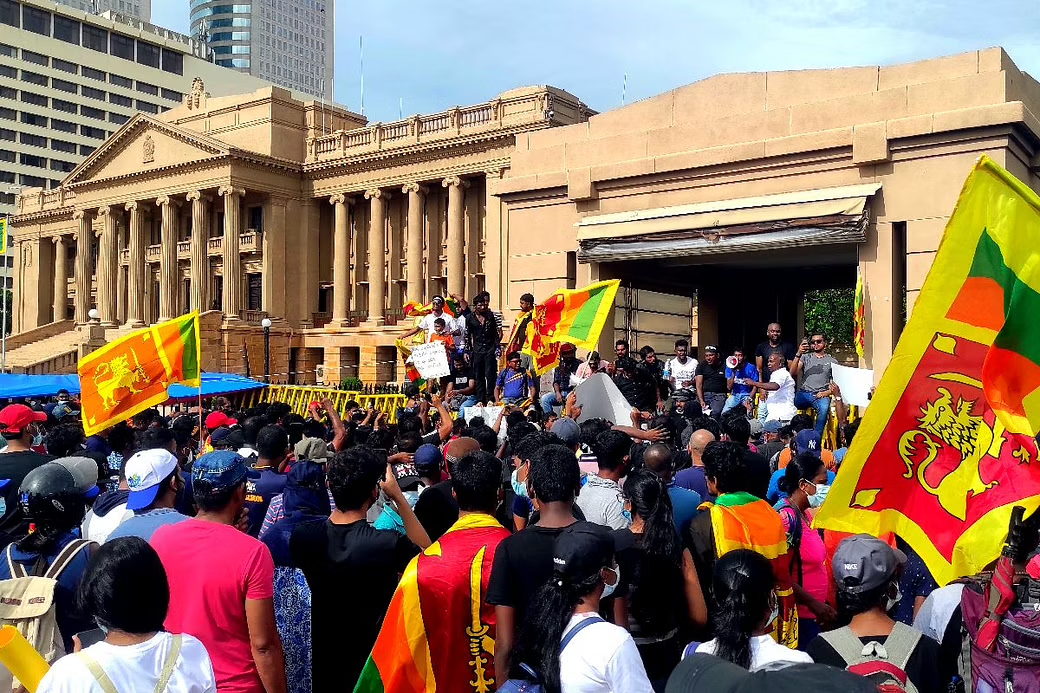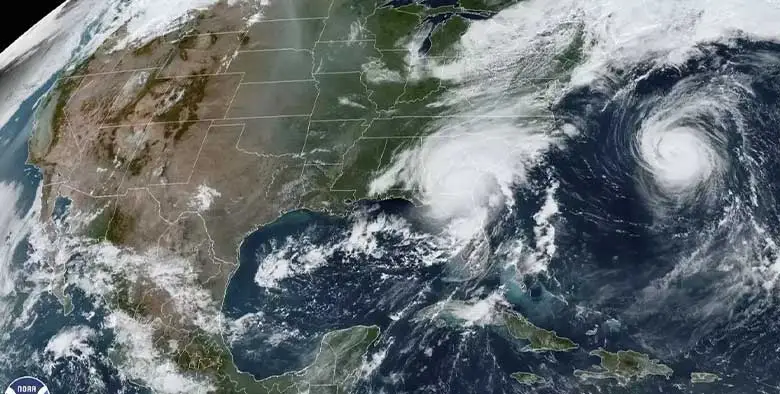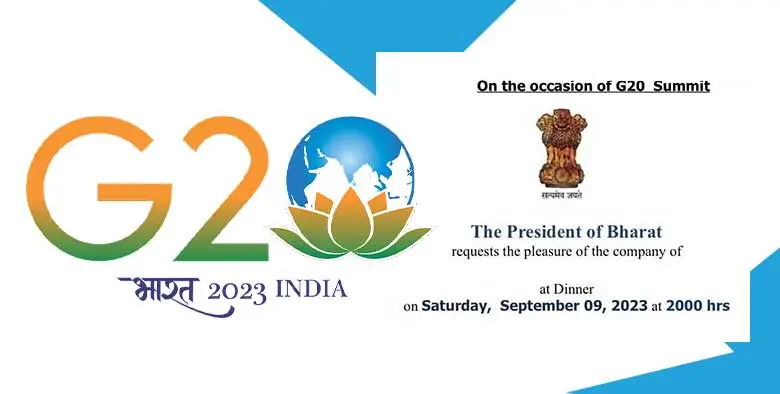What Led Sri Lanka To Enter The Worst Economic Scenario?
The Sri Lanka economic crisis is an ongoing situation that started to take its shape a long time back. According to sources, the country's economic situation started to degrade from the time when the top leadership came in the hands of the Rajapaksa family. The crisis experienced by the island nation is one of the 'worst economic situation' since its independence in 1948.
According to sources, the reason for the emerging situation in the island nation happened due to a shortfall of foreign exchange and rising foreign debts. These situations have instigated the citizens to come out to protest against the country's top leadership. It is because the situation in the country has worsened to an extent where the island nation is not in a position to fulfil its citizen's daily basic requirements.
Reflecting their anger towards the country's top leadership, the protesters reportedly breached the official residence of Lankan President Gotabaya Rajapaksa. Along with doing so, the protesters set on fire the private residence of Prime Minister Ranil Wickremesinghe while demanding his resignation.
Well! The situation in the island nation is not good from any perspective. Hence, it needs to overcome this condition at the earliest possible time. To do so, the nation has to address the root causes of the crisis. But, what were these causes which led the island nation to experience the worst economic crisis?
Causes For Sri Lanka’s Ongoing Economic Crisis
From history textbooks, anyone can easily find out that the events happening in the present have their traces in the books itself. The same thing applies to crises emerging in present scenarios. If we try to figure out pieces of evidence for the economic downfall of Sri Lanka, we can learn that the crisis is the combined effect of past mistakes committed by the country's top leadership. Some of these involve:
Tax Cuts And Monetary Printing
In 2019, before the country's Presidential Election, Gotabaya Rajapaksa announced a reduction in tax rates. The decision he took was to attract citizens' attention to favour his party in soon to be happening Parliamentary Elections.
Following the president's announcement, the cabinet cut the value-added tax to 8 percent from 15 percent. In addition to slashing the tax slab, the cabinet abolished 7 other taxes, including a 2 percent nation development tax paid by businesses.
The slashing of tax rates led to the downgrading of credit rating, which disrupted Sri Lanka's access to international financial markets. In addition, the country regularly printed new currency notes to meet its debt obligations. Unregulated printing of currency notes and reduced tax rates resulted in the downfall of Forex reserves in the country from the healthy level of $8,864 million in June 2019 to $2,361 in January 2022.
External Debt
The major contributor that led the island nation to face its worst economic fallout is its habitual borrowing tendency. According to the sources, the country during the Rajapaksa government tenure took massive loans to develop certain infrastructural projects.
The major lenders for the amount were creditor nations as well as multilateral organizations. The borrowing from the lenders and reduction in the country's foreign reserves had led the nation to experience a balance of payment crisis.
As per the reports, the external debt service payments for Sri Lanka stood at USD 7 billion this year. In contrast to it, the foreign reserves of the country stood at USD 1.9 billion as of March 2022.
According to Sri Lankan Finance Ministry, the country required average assistance of around $3 million over the next six months to restore the supply of essentials, along with laying the recovery path for the distressed economy.
Chinese Influence
Continuing with the above-mentioned factor, some critics cite that China has a greater role in attracting the island nation to fall into its debt trap. As per some learnt sources, loans offered to Sri Lanka by the Exim Bank of China (The Export-Import Bank of China) for building the Hambantota International Port and the Mattala Rajapaksa International Airport were part of the Chinese debt-trap diplomacy.
The Chinese side was well aware of the financial instability of the island nation. Even after knowing about its instability, the Chinese side offered huge loans for developing unprofitable 'white elephant projects'. The purpose behind the loan sanctioning was to swallow up the strategic locations of the island nation in its favour.
Even though the Chinese side regularly cited that it was Sri Lanka's top leadership who requested the loan sanctioning, it is a well-known fact to everyone that China is barely a nation of its words.
Tourism
Sri Lanka is a tourism-dependent nation. It is because this nation is popular for its pristine beaches, clean streets, heritage buildings, delicious cuisine, and zestful people. However, the Covid-19-induced lockdowns and the 2019 Easter bombings have entirely shattered the country's tourism sector.
Due to low tourist visits, the source of foreign income was reduced to a great extent, which ultimately resulted in the downfall of the country's foreign-exchange reserves.
Agriculture Crisis
Sri Lanka is counted among the world's leading tea producers. In addition to it, the country is also self-sufficient in rice production. Well! The island nation became self-sufficient due to the use of inorganic fertilizers. Recently, the government had banned the use of inorganic fertilizers in the country.
The reason that the government cited in response to the action was the increase in the number of kidney patients. According to sources, the government mentioned that the use of inorganic and agrochemical-based fertilizers contributes to causing kidney diseases.
However, the World Health Organization itself raised doubts about the relation between kidney diseases and inorganic fertilizers.
Nonetheless, the ban on fertilizers has contributed the country to suffer a loss of around $425 million as its tea exports reduced significantly. Also, the ban on fertilizers shifted the position of the country from a self-sufficient country in rice production to a rice importing country instead.
Russia-Ukraine Conflict
Adding fuel to existing economic crisis in the country, the Russia-Ukraine conflict worsened the economic situation of the island nation. It is because Sri Lanka shares good relations with both Russia and Ukraine. The war between the two nations has led the island nation to face repercussions in terms of its financial stability.
How Does An Economic Crisis Affects The Life of a Countrymen?
From a far outlook, the impact of worsening situations in different countries seems normal for others. However, the real impact of situations affects the livelihood of the country's citizens. The same is the situation for Sri Lankan citizens. Some citizens are fleeing away from the country, while some are protesting against the country's top leadership.
Citizens are raging with fire because the economic crisis has affected the nation's condition in the following ways:
Shortage Of Fuel And Power Cuts
Due to the shortage of foreign capital, the country is not in a position to import crude oil or coal to meet its requirements. Due to this situation, the government has banned fuel selling to private vehicles. The vehicles allowed to purchase fuel involves only government vehicles, public buses, ambulances, and other vehicles of importance.
In addition to restricting fuel sales, authorities have allowed routine power cuts to conserve energy to a certain extent. The power supply shortage has greatly disrupted Sri Lankan's lives. According to reports, doctors at various medical facilities are relying on their mobile torches to carry out operations of serious patients.
Inflation
The deduction in the value of the Sri Lankan Rupee has increased the inflation rate in the country. Due to this, the countrymen are forced to purchase essential items at very high prices. According to the data from the government portal of Sri Lanka, the country's inflation rate increased to 54.6% in June 2022 from 39.1% in May 2022. The surge in inflation was driven by the increase in Food and Non-Food categories.
Following the trend, Food Inflation in the country has increased to 80.1% in June 2022 from 57.4% in May 2022. Similarly, Non-Food Inflation increased to 42.4% in June 2022 from 30.6% in May 2022.
Education
In March 2022, certain schools in Sri Lanka postponed their term/mid-term examinations due to the shortage of paper and ink in the country. The shortage of paper not only impacted the education sector of the country; it also led many publication houses to shut their operations. Due to this, newspapers and other printing presses are not working in the country.
Health
Sri Lanka's economic crisis has significantly impacted the country's health sector. The limited amount of Forex reserves restricted the supply of essential medicines and medical equipment. Learning about the shortage of medical supplies, authorities have ordered to restrict unnecessary operations and surgeries. Instead, those operations are permitted where the patient is in severe health condition. In addition to it, the medical staff is forced to reuse medical equipment due to the reduced supply of medical essentials.
Diplomatic Relations
Due to reduced foreign reserves, the island nation has closed its High Commission in Nigeria; consulates in Germany, Cyprus, and Australia; Embassy in Iraq and Norway.
What’s The Future of Sri Lanka?
In its response to Sri Lanka's worsening economic condition, officials from IMF said that the IMF is near to a staff-level agreement with the island nation. The possibility of agreement emerged after the official visit of IMF officials to the Lankan capital last month. However, the executive board approval and the disbursement of IMF aid to Sri Lanka will require Colombo to demonstrate its capabilities to restore its economy and debt levels to a sustainable footing.
However, the task of restoration is not simple as it looks. It is because restoration requires Colombo to commit to difficult reforms, including a hike in tax rates and a reduction in public sector spending.
IMF-backed staff-level agreement is the only hope for the island nation because it will offer Colombo a level of credibility so that the nation could bring its creditors to the negotiating table. Currently, the largest slice of its $35 billion external debt owes to holders of its international sovereign bonds. Away from it, China, Japan, and India are among its largest bilateral lenders.
Well! The above-mentioned solutions apply only in the country where the political leadership is stable. The current situation where the country's top-level leadership is ready to present its resignation does not favour the country's emergence from the crisis in the near future.












